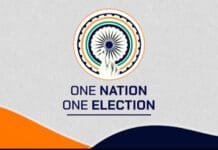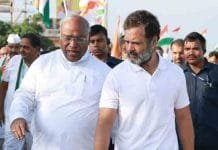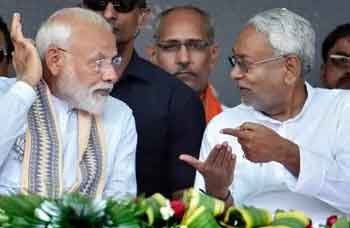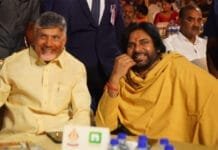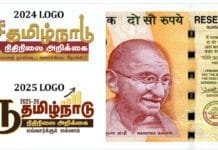INVC NEWS
New Delhi : In a fiery speech at the ‘Janata Ki Adalat’ event held at Chhatrasal Stadium, Arvind Kejriwal, the National Convenor of the Aam Aadmi Party (AAP) and former Chief Minister of Delhi, directed sharp criticisms towards Prime Minister Narendra Modi and the Bharatiya Janata Party (BJP). Addressing the pressing issues of rising crime, inflation, unemployment, and corruption in Delhi and across the country, Kejriwal’s remarks were not just aimed at critiquing the current government but also included a bold challenge. He stated that if Prime Minister Modi announces free electricity in the 22 BJP-ruled states, he would personally campaign for the BJP.
A Bold Challenge to the Prime Minister
Kejriwal’s challenge comes at a time when public discontent with the central government appears to be growing in various parts of the country. He emphasized that the “double-engine government”, referring to states where both the state and central governments are ruled by the BJP, has only led to “double looting.” His statements highlighted the increasing struggles in BJP-ruled states like Uttar Pradesh, Haryana, and Manipur, where governance failures, particularly in Manipur, have led to continuous unrest for over two years.
Kejriwal’s call to provide free electricity echoes the AAP’s successful electoral strategy in Delhi, where the promise of free power, education, and healthcare played a significant role in gaining the trust of the voters. By directly linking this populist measure to his willingness to campaign for the BJP, Kejriwal has thrown down a significant political gauntlet.
Free Electricity: A Game Changer in Indian Politics
Electricity subsidies have always been a critical issue in Indian politics, especially among the working class and rural populations. Kejriwal, during his tenure as Delhi’s Chief Minister, implemented a highly popular free electricity scheme in the capital, providing subsidies to households that consume up to a certain limit of electricity per month. This model has been a central talking point of the AAP’s governance, earning the party widespread support.
In his speech, Kejriwal pointed out that if the BJP truly cared about the common people, they would implement similar policies across their ruling states. His direct appeal to Modi struck a chord when he remarked, “Announce free electricity in BJP-ruled states, and I will campaign for you myself.” By making such a bold declaration, Kejriwal has shifted the focus towards policies that can directly benefit the lower-income strata and middle-class households.
Rising Crime, Inflation, and Unemployment in Delhi
During his speech, Kejriwal did not hold back in criticizing the BJP-led central government on various other fronts. He highlighted the rise in crime rates in Delhi and the deterioration of women’s safety, directly targeting the Delhi Police, which functions under the control of the central government. By attacking the law and order situation, he sought to expose the inefficiencies of the central administration in managing the national capital.
Kejriwal also underscored the issues of inflation and unemployment, which have plagued not only Delhi but the entire country. The sharp increase in the prices of essential goods, combined with a lack of job opportunities, has created widespread dissatisfaction among the public. Kejriwal emphasized that these issues have been exacerbated by the policies of the central government, which have done little to alleviate the concerns of the common man.
Criticism of Double-Engine Governments: Failure or Success?
One of the most striking parts of Kejriwal’s speech was his critique of double-engine governments. He provided examples of failure in states such as Uttar Pradesh, Haryana, and Manipur, where both the state and central governments are led by the BJP. According to him, these states have witnessed rising problems, including lawlessness, lack of development, and government corruption.
Kejriwal took a particular dig at the ongoing situation in Manipur, which has seen continuous unrest for the past two years. The failure of the BJP government to restore peace and stability in the state, according to Kejriwal, is a clear reflection of their inability to govern efficiently, even with both the state and central governments being from the same party.
Delhi’s Safety Concerns: A Targeted Attack on the BJP
Kejriwal’s remarks on the worsening security situation in Delhi were particularly scathing. He accused the BJP of weakening security in the city by removing bus marshals, who had been appointed to ensure the safety of passengers, particularly women, in Delhi’s public buses. These marshals, Kejriwal pointed out, had prevented several crimes from occurring, but their removal, he claimed, was a deliberate move by the BJP to weaken security and undermine his government’s efforts.
“The BJP government is anti-poor,” he alleged, accusing them of taking away jobs from the underprivileged. Kejriwal’s critique of the central government’s handling of the Delhi Police and the removal of bus marshals struck a chord with many who are concerned about the rise in crime and the safety of women in the capital.
The Politics of Free Electricity and Social Welfare
Kejriwal’s challenge to the BJP regarding free electricity is deeply intertwined with the broader question of social welfare policies in India. Under AAP’s governance in Delhi, policies aimed at providing free basic services like electricity, water, education, and healthcare have proven to be immensely popular among the electorate. These policies have helped Kejriwal and his party position themselves as champions of the common man, contrasting sharply with the BJP’s market-driven economic approach.
The central message of Kejriwal’s speech was that social welfare policies—such as free electricity—are not only feasible but also necessary in order to alleviate the economic pressures faced by millions of Indians. By calling on Modi to adopt similar measures in BJP-ruled states, Kejriwal is attempting to shift the national political discourse towards policies that directly benefit the lower and middle classes.
A Growing Rift Between AAP and BJP
Kejriwal’s speech at the ‘Janata Ki Adalat’ has further exposed the growing rift between the AAP and the BJP. While the BJP has positioned itself as a nationalist party with a strong emphasis on economic growth, AAP has focused on grassroots development and social welfare policies aimed at improving the lives of ordinary citizens. This stark contrast in governance approaches has led to heightened tensions between the two parties, particularly in Delhi, where AAP’s governance model has repeatedly clashed with the BJP-led central government.
Kejriwal’s fiery rhetoric and direct challenges are likely to escalate these tensions further as the country approaches crucial elections. His speech was a clear attempt to solidify AAP’s position as a pro-poor, pro-development party, while painting the BJP as out of touch with the concerns of the common people.


